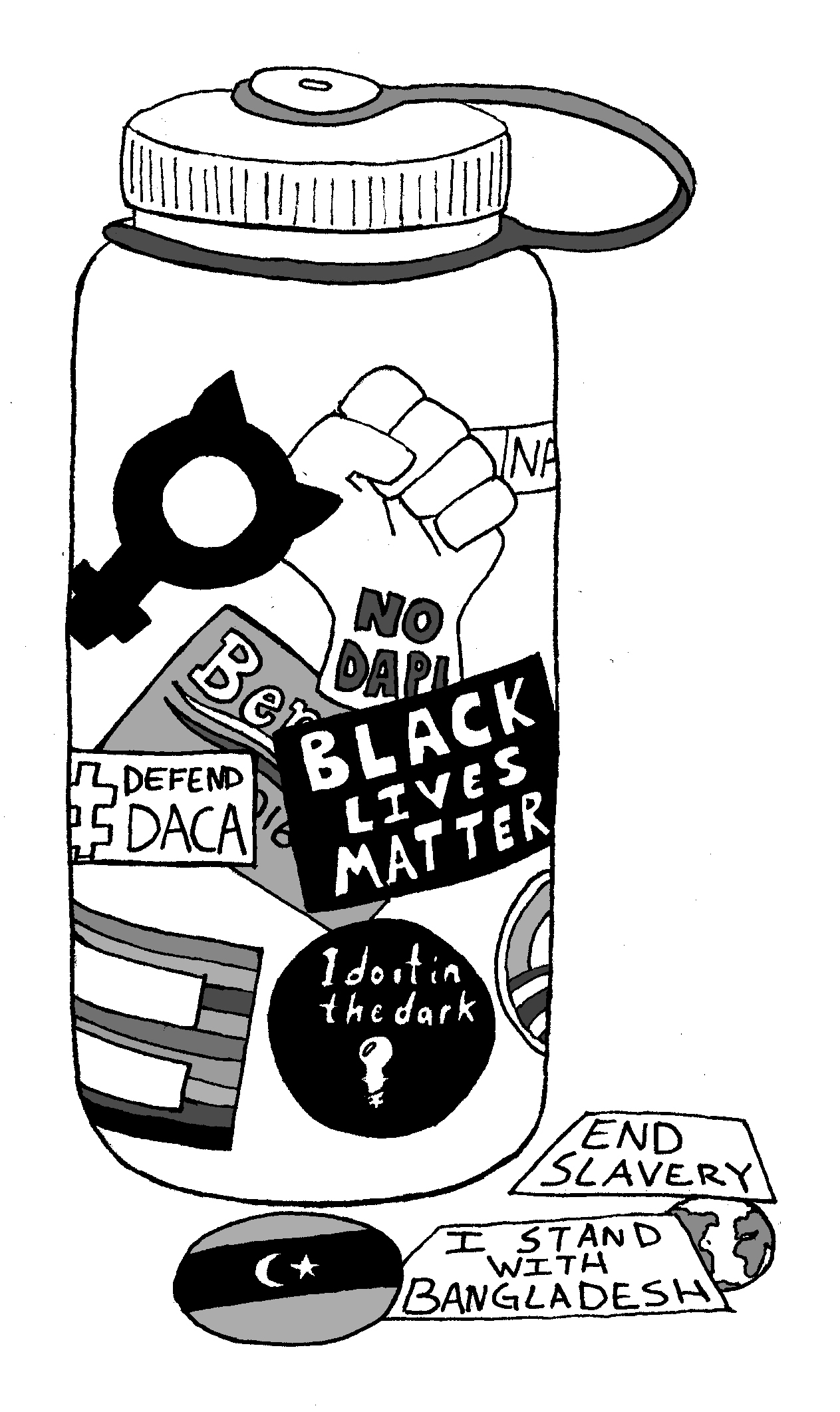Why Bowdoin fails at activism
December 8, 2017
 This
piece represents the opinion of the author
.
This
piece represents the opinion of the author
.
Highly selective activism—this is a term I have coined to describe Bowdoin’s advocacy. Our student body is proud of being a culturally sensitive campus that aims to uphold the common good. In my time here, there has been a lot of mobility and activism on campus surrounding issues regarding women’s rights, LGBTQ rights and, recently, DACA. This speaks to our progress as a student body in creating a sanctuary that values these identities and peoples. However, our student body remained silent after Trump’s travel ban, Charlottesville, bombings in Bangladesh and now Libya. As a community, our activism is selective even though these issues are equally as important. We have determined what issues hold value to us and consequently omit issues that affect people on our campus and beyond. I recognize it is impractical for Bowdoin to respond to all prevalent topics. However, there needs to be more accountability to acknowledge the prevalence and the magnitude of these issues.
In the wake of recent news in Libya, Bowdoin’s silence is even louder. The world has been reacting to videos of slave auctions and trade in Libya. These videos have sparked realizations that slave trade did not end after Atlantic slavery. Thousands of migrants—male, females and children alike—across Africa were captured by militia in Libya and sold as slaves. I was born and raised in Nigeria, and my African roots are the core of my identity. Many of the migrants-turned-slaves originated from my home country and it hurts my heart that my people’s bodies are being traded and beaten. I am even more disheartened that a community that I hope to call home is not moved or aware of the slave trade. Somebody once said to me “you can’t expect people to feel for you, if they are not you.” However, I can expect a community of driven, intellectual and passionate students to respond and mobilize regarding Libya’s current crisis.
Though I recognize the fluidity in activism, one of the underlying causes of our failure is ignorance. There is no way to provide aid or support if we are unaware of these problems. Bowdoin’s selective activism is not a result of malicious unconcern but rather the lack of knowledge. Our Bowdoin bubble weakens the connection with our neighboring cities and the larger world. In order to expand our frame, we need to deconstruct the notions that these matters are distant from our community. These issues affect students on our campus to some degree. Once we begin to recognize that these issues affect the basic rights of all persons, we can mobilize to aid the human condition. It is not the responsibility of the oppressed to educate and organize, we all have a role to play. I believe that if we redefine world issues as campus discourse and as necessary to fulfilling the common good, we will thrive at activism.
Bowdoin’s selective activism is a microcosm of the larger society. However, we as intellectual beings need to change our attitude towards all issues that subdue every human’s rights. We need to actively decide to learn more about these issues that affect our roommates, professors and the larger society. To this day, there are slaves still being sold in Libya. If you can remain silent when black bodies are still being sold as merchandise, do black lives really matter to you?


Comments
Before submitting a comment, please review our comment policy. Some key points from the policy: